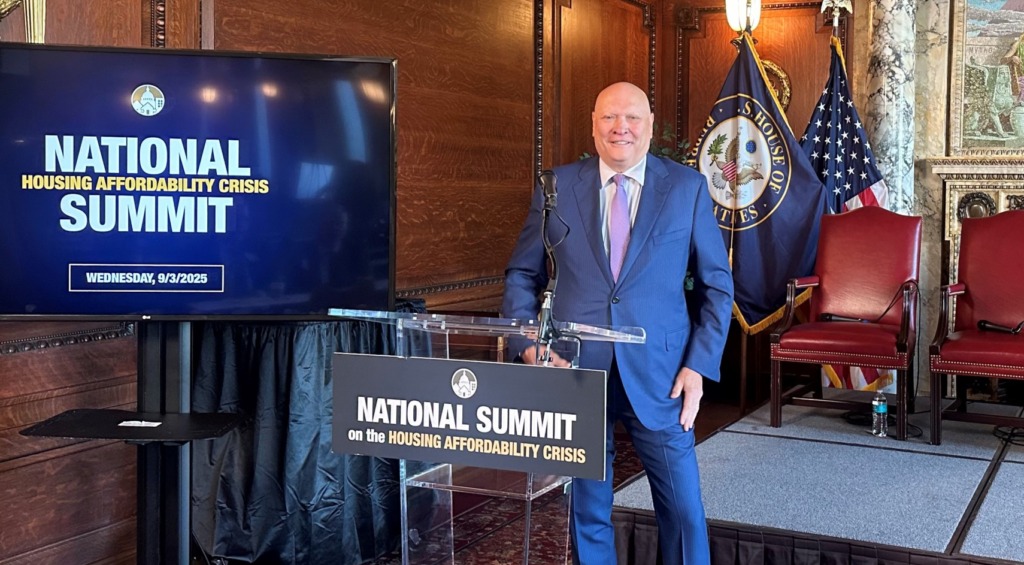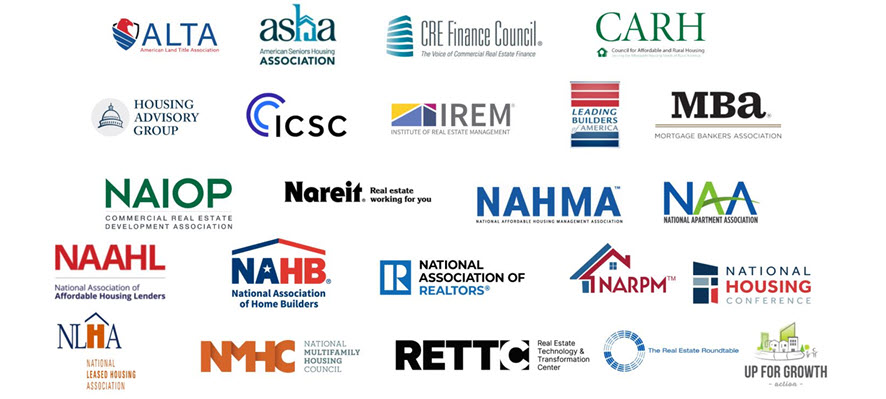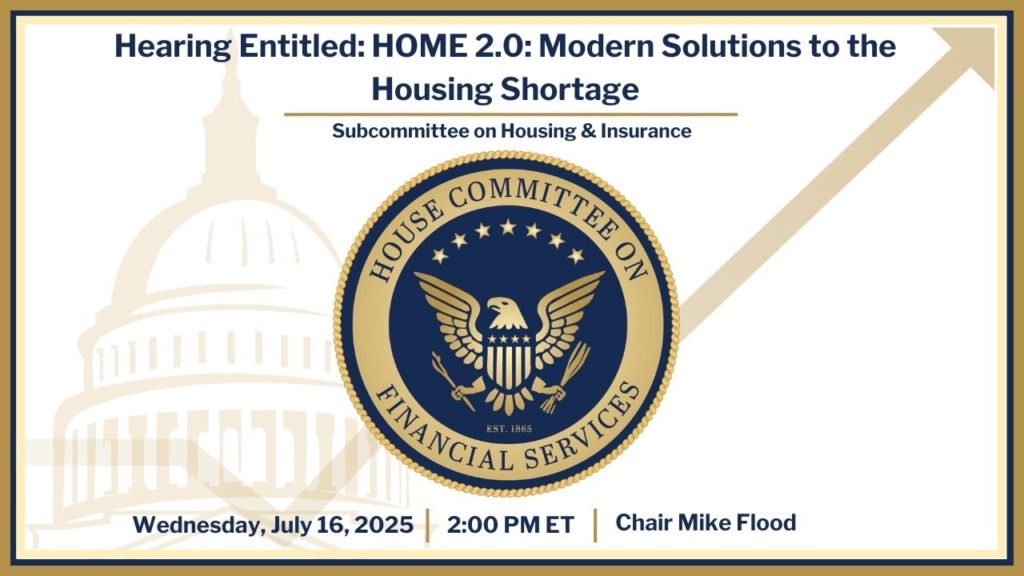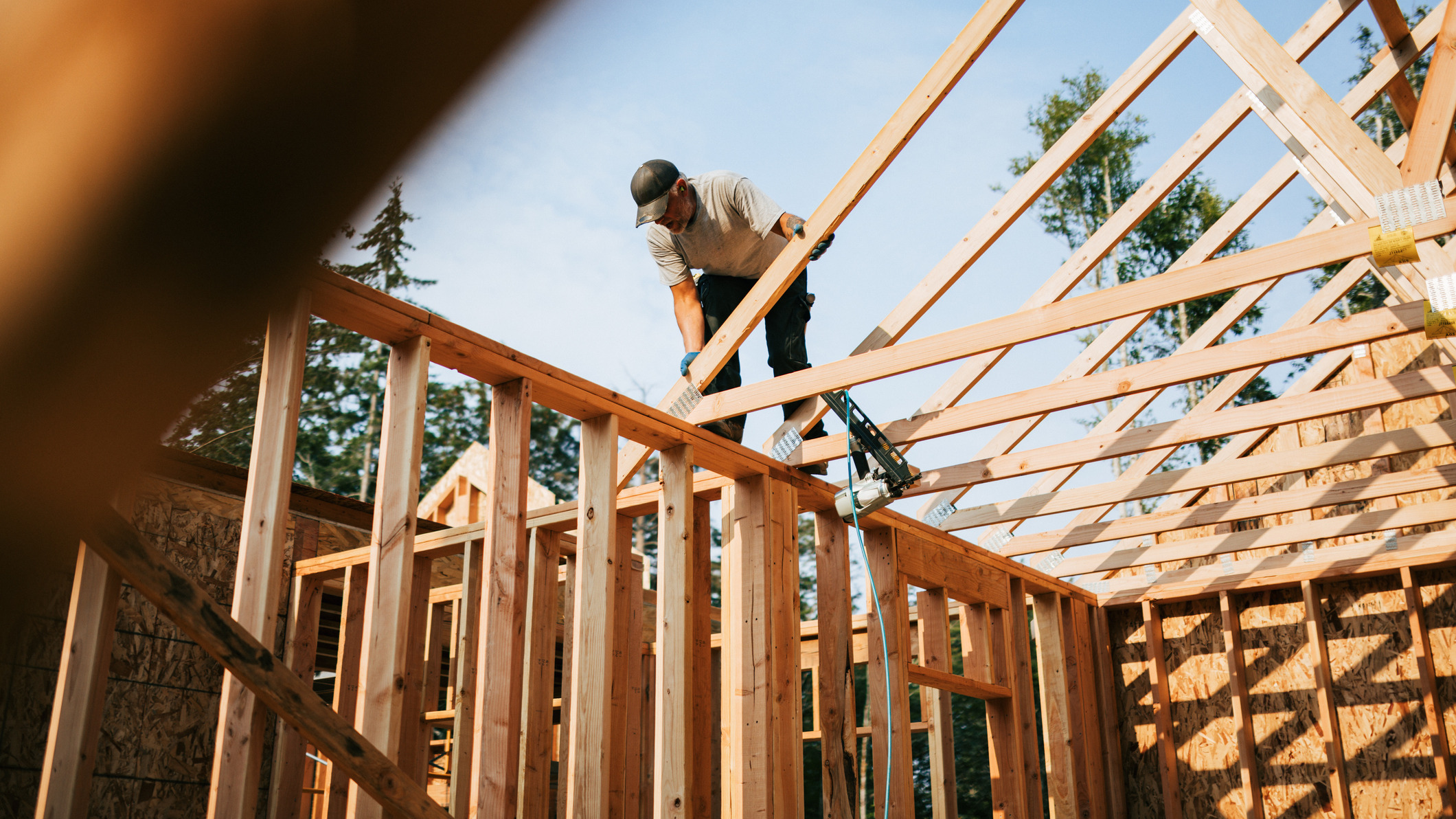
Congress returned from recess this week with housing affordability at the forefront, as lawmakers, industry leaders, and advocates launched new legislation, coalition efforts, and regulatory proposals aimed at expanding supply and lowering barriers to residential development.
Summit on Housing Affordability
- The National Summit on the Housing Affordability Crisis convened Sept. 3 on Capitol Hill and featured House Democratic Leader Hakeem Jeffries (D-NY), Sen. Ruben Gallego (D-AZ), and other lawmakers calling for bold action to expand and improve the affordability of housing nationwide. Rep. Jimmy Gomez (D-CA) hosted the summit. (Watch Panel)
- RER President & CEO Jeffrey DeBoer joined Rep. Gomez, Emily Cadik (Affordable Housing Tax Credit Coalition), and Will Fischer (Center on Budget and Policy Priorities) on the summit’s opening panel “Making the Housing Puzzle Work.” (Watch DeBoer’s Remarks, Sept. 3)

- DeBoer commented, “Housing affordability is at its core a supply problem—and supply is constrained by costs, labor, and capital. We need policies that continue to expand the Low-Income Housing Tax Credit, advance the bipartisan Revitalizing Downtowns and Main Streets Act to encourage the conversion of obsolete buildings, and ensure we have the skilled workforce to build. That’s why it’s so important to bring together lawmakers and stakeholders from every sector, because housing is an essential facet of American life, and solving this crisis requires public and private partners working together to expand supply, modernize rules, and deliver homes—both owned and rental single-family and multifamily—that meet the needs of Americans.”
- Rep. Gomez highlighted the RER-backed Revitalizing Downtowns and Main Streets Act, which would create a federal tax credit to convert underutilized and obsolete commercial properties into affordable housing.
- Rep. Gomez framed the affordability crisis as a test of confidence in U.S. institutions, saying America “needs a housing boom” prioritizing fairness and accessibility. (Rep. Gomez Press Release, Sept. 4)
Bipartisan Housing Legislation

- On Sept. 2, RER joined more than 20 real estate and housing groups in a Housing Affordability Coalition letter to Congress urging action on several bipartisan bills, including the HOME Investment Partnerships Reauthorization and Improvement Act, the Workforce Housing Tax Credit Act, and more. (Letter, Sept. 2)
- The letter emphasized that housing affordability requires public–private partnerships and the removal of regulatory barriers.
- Rep. Mike Flood (R-NE), chair of the Housing and Insurance Subcommittee, said he aims for an October markup of a bipartisan HOME program reauthorization with Ranking Member Emanuel Cleaver (D-MO). (PoliticoPro, Sept. 3)
- Their plan would expand uses of HOME funds, reduce regulatory burdens associated with Davis-Bacon, NEPA, and Buy America compliance, and speed affordable housing development.
- The House agenda complements the Senate’s ROAD to Housing Act, advanced in July, and includes veteran housing and land-use reform bills. (Roundtable Weekly, Aug. 1)
- RER submitted a comment letter in support of the ROAD to Housing Act ahead of the committee’s first bipartisan housing markup in over a decade in July. (Roundtable Weekly, Aug. 1)
- Earlier this week, Treasury Secretary Scott Bessent said the Trump administration is weighing whether to declare a national housing emergency this fall, citing zoning and building codes as barriers to new supply. (Bloomberg, Sept. 1)
Coalition Seeks Flexibility on Davis-Bacon

- On Sept. 3, RER and a group of multifamily trade associations sent a comment letter to HUD Secretary Scott Turner urging the use of Project Labor Agreements (PLAs) to determine prevailing wages on HUD projects. (Letter, Sept. 3)
- The letter states that PLAs would provide more accurate, local, and timely wage determinations than the Department of Labor’s (DOL) survey method, which often delays projects and raises costs.
- In May, RER joined a coalition of 15 national real estate organizations urging the DOL to repeal and revise its 2023 Davis-Bacon rule. (Letter, May 20 | Roundtable Weekly, May 23)
- The coalition said voluntary PLAs could reduce administrative burdens, speed delivery of HUD-backed housing, and serve as a test case for future Davis-Bacon reforms.
What’s Next
With Congress back in session, housing advocates are pressing for quick action on bipartisan bills and regulatory reforms. RER will continue to push for policies that expand supply, modernize outdated rules, and foster partnerships to address the nation’s affordability crisis.

